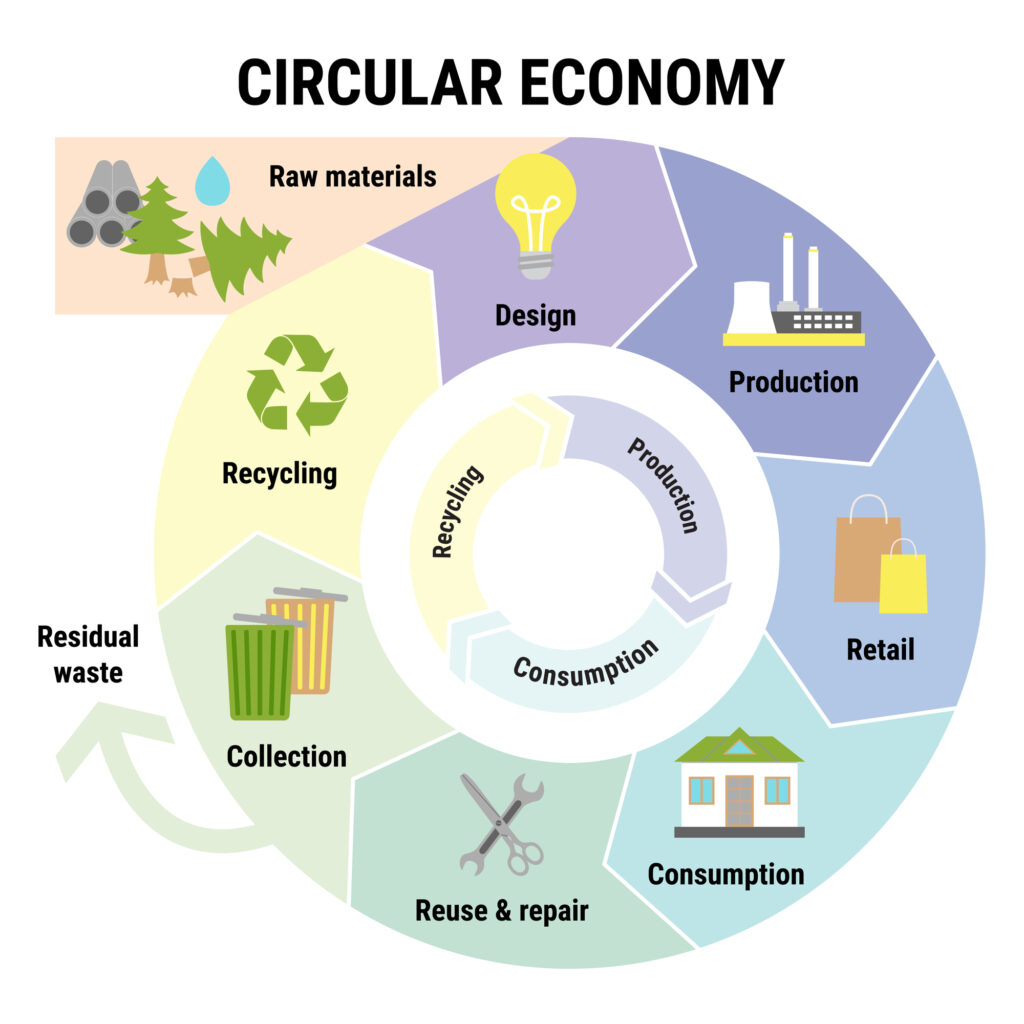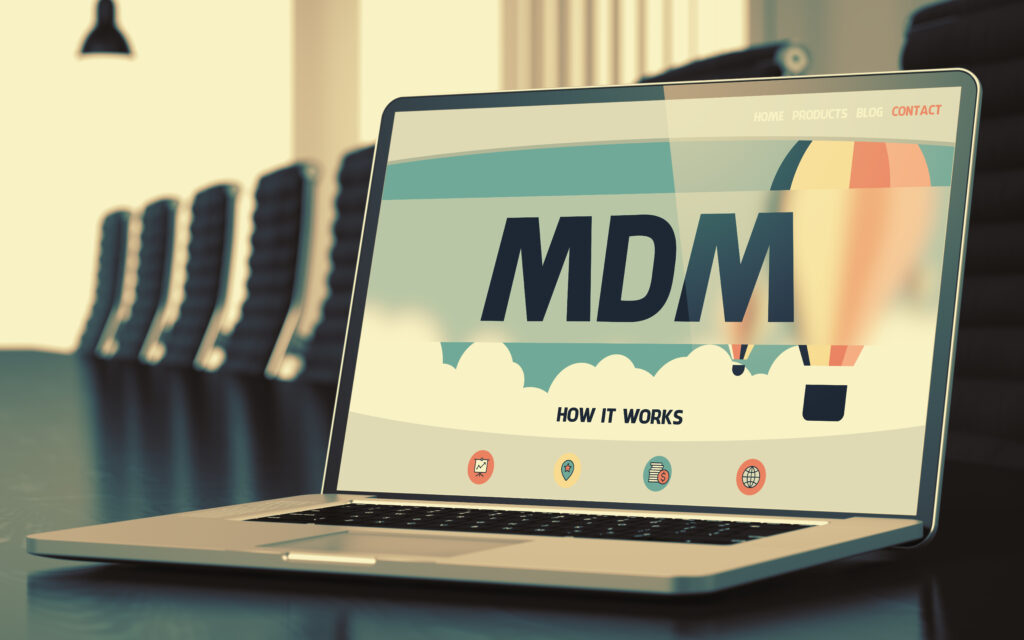
The principles of a circular economy revolve around products and systems that should be designed with the intention of maximising their lifecycle and facilitating reuse, repair, and recycling.
Which sounds like an approach any self-respecting business would be keen to adopt and adhere to - but, in effect designing out waste and promoting a regenerative and sustainable economic system is not as easy as it sounds.
Giving up an ingrained approach to manufacturing that has been successful for decades involves selecting materials and components that can be easily disassembled, and shifting to a “circular” way of thinking that encapsulates the entire product lifecycle from production to disposal.
At the moment, estimates suggest that only 8.6% of the world’s economy is circular. Globally we have historically followed a linear economy in which finite resources are extracted to make products that are used - generally not to their full potential - and then thrown away or known as the 'take-make-waste' model.
There are a number of industries however that are actively participating in designing products for maximum lifecycle and incorporating principles of reuse, repair, and recycling.
The "take-make-waste" model
Moving away from a "take-make-waste" model, the circular economy focuses on extending the lifespan of products through repair, refurbishment, and remanufacturing. It also encourages the introduction of product sharing, rental, or leasing models to maximise their useful life.
There are companies and governments actively embracing circular economy principles and implementing strategies to extend product lifespans and maximise resource utilisation.
However, making that transition from a linear to a circular economy has a profound impact on data management. To successfully navigate this shift, businesses must adapt their data strategies to meet the unique demands of circular economy principles.

Data is the lifeblood of the circular economy.
The circular economy involves tracking products throughout their entire lifecycle, from production to disposal, ending up recycled or as a component in remanufacturing. This flow significantly increases the volume and complexity of data that organisations need to manage.
Those data sources can quickly expand to include product usage data, repair records, recycling statistics, and more. And this is where MDM (Master Data Management) can help businesses make informed decisions regarding the circular economy.
Today, there are a number of different progressive industry verticals that are actively following a circular economy, in conjunction with managing the growing complexities of data management they now face.
Industries adopting a circular economy

Retail
Patagonia have for example implemented a take-back programme for their products, allowing customers to return used items for repair, resale, or recycling. They utilise data to track the quantity and types of garments returned, the lifecycle of products, identify repair needs, and measure the environmental impact of their operations.
This data helps them understand the volume of clothing being recycled, track trends, and optimise their recycling processes. They want to be able to use the data to identify the most effective methods for recovering and reusing materials so that they can incorporate recycled materials back into their production processes, reducing the need for new resource extraction.
Without a solution in place, according to Patagonia, global textile waste is expected to increase 60 percent annually until 2030, when it’s estimated to hit 148 million tons per year.
Clothing brands like H&M are embracing sustainable fashion practices. They design clothing made from durable materials that will last, offer repair services, and implement garment take-back initiatives for recycling.
Data is used to track material usage, analyse consumer behaviour, and identify opportunities for material recovery and circular fashion solutions.
To implement circularity effectively, retail businesses must be able to trace the flow of materials, products, and components in both forward and reverse supply chains. This requires an approach to capture the origin, composition, and history of each item.
Full transparency of the supply chain is essential to verify sustainable sourcing, especially if that is an integral part of the sales and marketing message of these retail brands.
Plus, data can be used to analyse product lifecycles, track customer feedback, and optimise recycling and remanufacturing processes.

Electronics
Dell have established initiatives for recycling and refurbishing electronic devices. They collect used products, disassemble them, recover valuable components, and either refurbish and resell them or recycle the materials.
They use the data they collect to capture product information, track product returns, identify opportunities for refurbishment, and ensure responsible disposal of electronic waste.
Most importantly, data is used to assess the environmental impact of their recycling and refurbishment initiatives from energy consumption, emissions, and waste generated during these processes to how they perform against sustainability goals.
By analysing data on what are particular device failures, repair requirements, and a components lifespan, Dell can identify opportunities for product improvements, enhanced durability, and extended lifecycles.
Dell uses data to identify valuable materials present in electronic devices, such as metals, plastics, and rare earth elements. This information helps them optimise recycling methods and recover valuable resources efficiently.

Automotive
Car manufacturers such as Toyota and Ford are incorporating design elements that enhance product longevity and recyclability. They use modular designs, prioritise the use of recyclable materials, and establish take-back programmes for end-of-life vehicles.
Data plays a part monitoring component usage, analysing product performance, and optimising recycling processes.
Volvo have been offering remanufacturing for 70 years, developing the processes to extend the lifecycle of parts and components. Remanufacturing gives a product or component a new life.
Remanufacturing can be used to short-cut the complexity of value chains of parts, leading to significantly lower material and energy usage compared to a new part, made to the same high-standards. The Volvo remanufacturing programme mainly operates with engines, filters, gearboxes and rear-axle transmissions.
Volvo utilises the data it gathers to assess the condition of returned parts, analysing data on a components usage, failure rates, and performance. Combining this data helps it determine which parts can be effectively remanufactured and how to extend the product lifecycle.
And after remanufacturing, Volvo is keen to collect data on performance to ensure that these parts meet or exceed the same high standards as new components. This helps maintain customer satisfaction and confidence in the remanufacturing process.
By comparing the costs of remanufacturing versus manufacturing new parts, Volvo can evaluate the financial viability of their remanufacturing initiatives. This data-driven approach helps optimise cost structures and ensure the economic sustainability of their remanufacturing operations.

What is MDM and how do businesses use it?
Master Data Management (MDM) is a discipline and a set of processes and technologies used by organisations to manage their critical business data (known as master data).
By centralising and standardising their data through an MDM strategy, businesses can ensure that everyone is working with and has access to the same information across the organisation.
How can an MDM solution help these industries use data in various ways to support their circular economy initiatives?
Centralisation
By centralising and analysing product data, businesses can pinpoint inefficiencies and develop strategies for minimising waste, improving resource utilisation, and extending the lifespan of a product. This optimisation process can lead to cost savings and reduce the environmental impact of materials.
In addition, tracking the entire product lifecycle helps identify opportunities for repair, refurbishment, recycling, or remanufacturing.
Key Performance Indicators (KPIs)
An MDM solution can support businesses in monitoring and measuring key performance indicators (KPIs) relevant to the circular economy.
By capturing and analysing data on resource efficiency, waste reduction, product reuse, and recycling rates, businesses can track their progress, set targets, and generate reports to demonstrate their commitment to circular economy principles.
This data-driven reporting can enhance stakeholder engagement and attract environmentally conscious customers and investors.
Fostering collaboration
MDM solutions can enable collaboration and integration across business ecosystems.
By sharing standardised data with suppliers, customers, and partners, businesses can work harder on delivering on circular economy initiatives such as sharing resources and recovering materials. This collaboration enhances the overall effectiveness and impact of circular economy practices.
Supply chain optimisation
Data can be used to optimise supply chains, identify inefficiencies, reduce waste, and improve resource allocation. This includes tracking materials, components, and products throughout the value chain, providing end-to-end traceability and transparency across the entire chain.
Unit of Measure, experts in STEP
Supporting a circular economy initiative is only one out of many business benefits of Master Data Management. If you are ready to get started with MDM, we here at Unit of Measure are here to help you. We recommend the MDM platform STEP developed by Stibo Systems, which is a tool that can help you make the most out of your business data to achieve your business goals.
At Unit of Measure we have more than 20 years of experience in implementing STEP for large global enterprises with complex requirements and our STEP experts are here to make your MDM journey simple and smooth.
Get in touch to roll out MDM for your business, improve data quality and governance, increase efficiency and revenue, and gain valuable insights for better decision making.
Book a free consultation call with us today to learn more about how we can help.